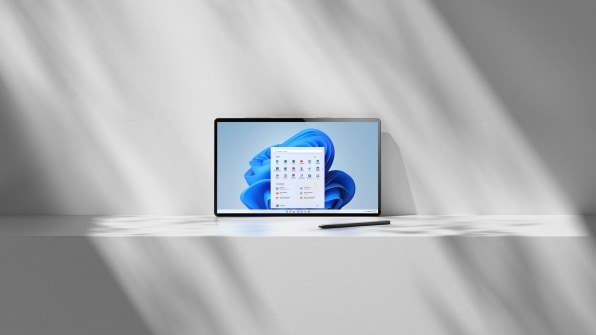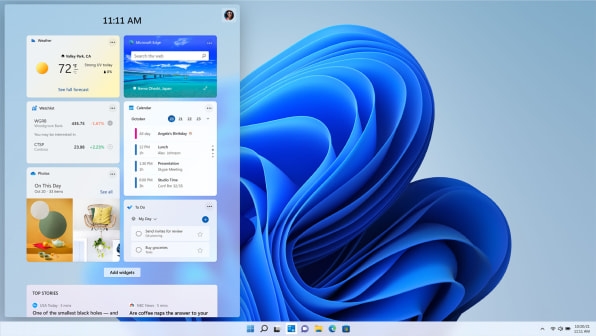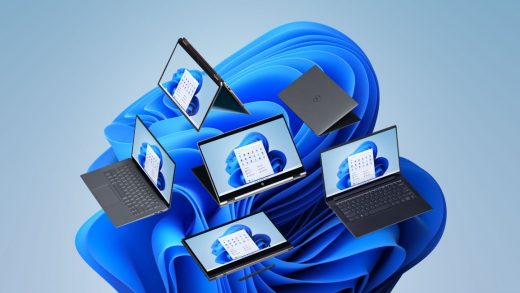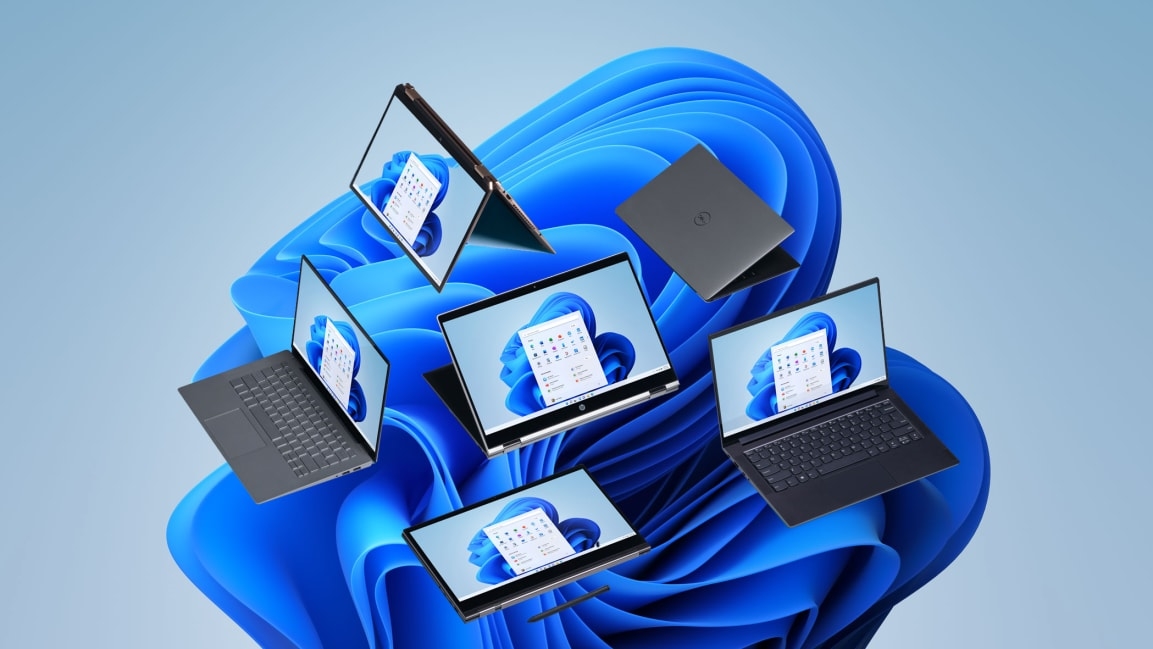The iPad alternative of my dreams could be a Windows 11 device
Ever since Apple CEO Tim Cook cracked wise about toaster fridges nine years ago, I’ve wanted someone to prove him wrong.
Cook’s famous comment, that you can “converge a toaster and a refrigerator, but those things are probably not going to be pleasing to the user,” was an early rebuttal to Windows 8 and its attempt to offer a single operating system for laptops and tablets alike. Cook had his point, of course—Windows 8 became one of Microsoft’s most notorious flops—but I’ve never stopped believing that a great hybrid operating system is possible.
Apparently, neither has Microsoft. Windows 11, announced this week, looks like its most cogent attempt yet at making laptops and tablets mix. When it launches this holiday season, it’ll include Android app support and a host of new touch-friendly features. It’ll also run on a wide range of increasingly refined laptop–tablet hybrids, which Microsoft and its PC partners never stopped making even after the disastrous Windows 8 launch.
The result could be exactly the kind of crossover computer I’ve always wanted, and that other companies like Apple and Google refuse to make.
Where other tablets went wrong
In the past, I’ve tried to make lots of different hybrid devices work, but I’ve always run into issues that end up being dealbreakers.
The iPad Pro, for instance, has too many little annoyances that get in the way of me getting things done. I can never get my OneDrive files to sync reliably in Apple’s Files app, which means it’s a hassle for me to edit documents that I’ve started working on elsewhere. Safari also feels too limited in its current form, and I find multitasking to be a hassle.

Given those limitations, I’m also not eager to spend upwards of $1,430 on a 12.9-inch iPad Pro and Magic Keyboard, so I’ve ended up using smaller iPads with cramped screens instead. I’m envious of people who can work full-time on an iPad, including my editor Harry McCracken, but it just doesn’t work for me.
Microsoft’s Surface tablets always had the opposite problem. I’m comfortable working in Windows, but the operating system’s dearth of tablet apps make it less suitable than an iPad for play. After buying a Surface Pro 3 in 2014, I ended up switching back to a regular laptop a couple of years ago.
I’ve often thought that Google’s Chromebooks could offer the best of both worlds. They run the desktop version of Chrome—extensions and all—and they support Android apps for when it’s time to unwind. They also let you install Linux programs, which means I can use my beloved Typora for drafting articles in Markdown.
But even if I wasn’t trying to become less reliant on Google, Chrome OS still has a hardware problem: There are simply no good options for Chromebooks with detachable screens. Last year, I impulse bought a Lenovo Chromebook Duet, which is sort of like a miniature Microsoft Surface, and while it’s a fun little device, it’s just too slow and small for serious work. Unfortunately, it’s pretty much the only such device that isn’t more than a few years old.
Where Windows 11 might work
Windows 11 might end up being the Goldilocks solution to my dilemma.
To close the tablet app gap, Microsoft is partnering with Amazon, which will make its catalog of Android apps available through the Microsoft Store. Microsoft is also making the operating system more hospitable to touch screens without turning its familiar interface inside out. Icons, apps, and windows will have larger touch controls, and it’ll support new gestures for tasks such as exposing the desktop or switching between apps.

Meanwhile, it’s still Windows at heart. That means I’ll have no issues syncing my files or using the same programs I have on my desktop. As a bonus I’ll be able to use Microsoft Edge, which has sneakily become a better browser than Chrome or Safari.
Hardware won’t be a problem either. Microsoft will almost certainly keep making Surface Pro tablets, and other PC makers will likely offer alternatives in different shapes and sizes, just like they do now. And while those devices used to involve major compromises in performance and battery life, chipmakers Intel and AMD have made big leaps forward on both fronts. Even if they can’t quite beat the M1 chips on Apple’s iPads and MacBooks, the reality is that they come close enough.
Windows 11 won’t be perfect. Amazon’s Appstore is no substitute for the Google Play Store that comes standard on most other Android devices—though I’m hoping the partnership with Microsoft will encourage more developers to support it—and even Google’s store is no match for the iPad’s selection of tablet-optimized apps. It’s also unclear how much Microsoft’s tablet optimizations will help when you’re using traditional Windows apps.
But now more than ever, the idea of a great laptop–tablet hybrid seems within reach, whether Tim Cook thinks it’s possible or not.
(111)



